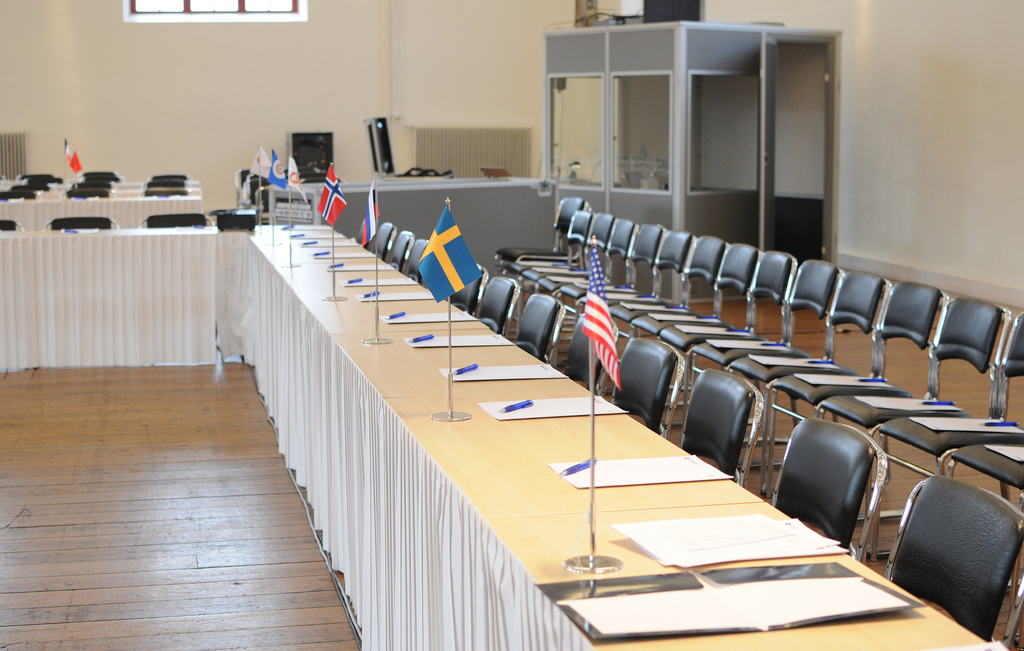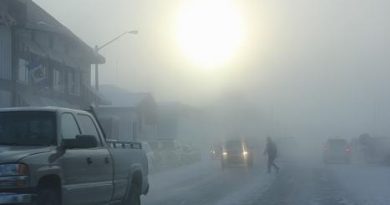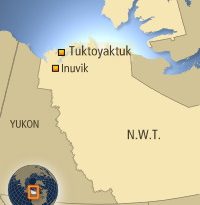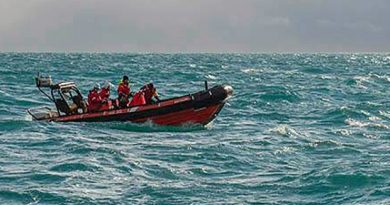Arctic Council Meeting May 15th: Who and What to Follow

Every two years, the Arctic Council (AC) Ministerial Meeting convenes in a city in the host country. The last meeting was in Nuuk, Greenland, and tomorrow morning, the AC will meet in Kiruna, Sweden. After the short two-hour meeting, the chairmanship will rotate to Canada. The entire meeting will be webcast on the Arctic Council’s website.
The foreign ministers who are expected are:
Canada: Arctic Council Minister Leona Agglukaq @leonaagglukaq
Denmark: Minister for Foreign Affairs Villy Søvndal @villysoevndal (in Danish)
Finland: Minister for Foreign Affairs Erkki Tuomioja
Iceland: Minister for Foreign Affairs and Trade @MFAIceland
Norway: Minister of Foreign Affairs Espen Barth Eide @EspenBarthEide
Russia: Minister of Foreign Affairs Sergei Lavrov @MFA_Russia (in Russian) and @MID_RF
Sweden: Minister of Foreign Affairs Carl Bildt @carlbildt & Minister of Environment Lena Ek @Miljodep
United States: Secretary of State John Kerry @johnkerry
As you can tell from the number of foreign ministers who use Twitter, social media will be an important force at the AC. Various non-profit organizations will attend the meeting, including the WWF, which has released a set of technical recommendations for what it hopes to see achieved in Kiruna. The WWF will be tweeting from @WWF_Arctic and will use the hashtag #ArcticCouncil, as will most organizations and news outlets covering the meeting. The Arctic Institute (@ArcticInstitute) will also be covering the events using the hashtag #ACKiruna.
A pre-Kiruna press briefing with Senior Arctic Official Gustaf Lind took place a week ago on May 6. You can watch a replay of the broadcast online on the Swedish Government’s website. Lind highlighted the program of the meeting, which is also available as a PDF here.
At the ministerial meeting, the Marine Oil Pollution Preparedness and Response Agreement will be signed. This follows in the footsteps of the 2011 Search and Rescue Agreement, the first such agreement signed under the auspices of the Arctic Council.
Three assessments will also be presented:
- Arctic Biodiversity Assessment
- Arctic Ocean Review
- Arctic Ocean Acidification Assessment
- The Arctic Resilience report will also be released. The study will examine how communities in the Arctic are coping with major transformations in the region brought on not only by climate chang, but also economic and social developments.
Additionally, the ministers will also adopt the Kiruna Statement. At the last meeting in 2011, Sweden suggested that the AC work to create statement that would “call for action and to demonstrate that the Arctic states are responding and reacting to the pressing needs of the region.” The statement will likely highlight the cooperative nature of the Arctic Council, showcasing how both Arctic states and Permanent Participants (the six indigenous peoples’ organizations represented in the AC) working together.
The AC will also adopt the Vision for the Arctic Region, which will likely outline how member states and Permanent Participants hope to see develop in the circumpolar north in the coming years.
The applications of countries to become permanent observer states will likely be the hottest topic in Kiruna. Today, the AC has 26 observers. Fourteen countries have applied to become permanent observer states, including China, Japan, South Korea, India, Singapore, and the EU. A decision on some, if not all, of these applications should be made tomorrow. The decisions were supposed to be made in Nuuk in 2011, but they were postponed to the next ministerial meeting. Everyone will be watching the meeting closely for the outcome of the applications. I’m not going to speculate on what will happen, but if the bids of China, the EU, or any other applicant for that matter are rejected, look to see what will happen with the recently proposed Arctic Circle forum, whose first meeting will be in October.
Another rendezvous to watch out for in Kiruna will be the side meeting between U.S. Secretary of State John Kerry and Russian Foreign Minister Sergei Lavrov, although they’re more likely to discuss Syria rather than Arctic affairs. Kerry and Lavrov already met just the other day in Moscow.
Finally, for some additional backgrounders on what will happen at the AC, check out Nunatsiaq News’ article and Swedish Foreign Minister Carl Bildt’s op-ed on why the AC matters in the New York Times.Nunatsiaq News, Alaska Dispatch, Barents Observer, and Sermitsiaq (in Danish) all are good local outlets to follow tomorrow. The mainstream media will be reporting, too – witness the Wall Street Journal’s article, “Arctic Body Comes In From the Cold.” Its claim that the region is gaining in geopolitical weight is affirmation that the AC is finally coming into its own. In his op-ed, Bildt suggested, “What we are doing in the Arctic Council is unique, and it might well be that this model could be used for other maritime areas of the world in the future.”




